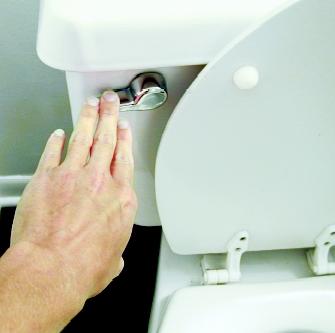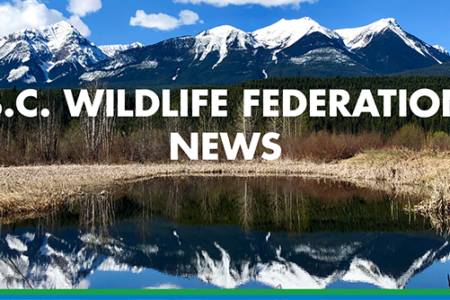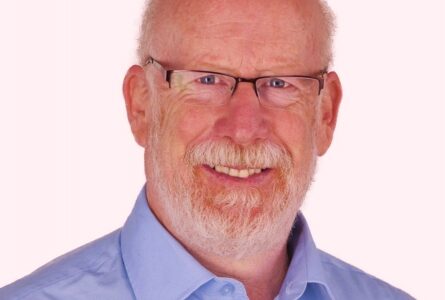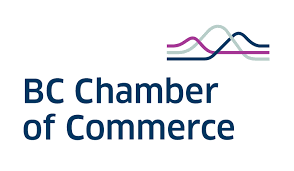Near record setting disagreement over regional sewer backs up and overflows to the provincial level
The ongoing stalemate between Rossland and Trail over the shared regional sewer service has come back to the forefront again and has now achieved what may become a record-setting stalemate.
The basic gist of the dispute,as previously reported in the Telegraph, is that Trail (who called for a service review on the sewer agreement) feels the current cost sharing formula is unfair and Rossland sees no need to change the funding formula until Phase Two of the liquid waste management plan goes ahead.
With no significant progress made since the proposal developed by the Sewer Committee (to change the formula to one based 50% on population and 50% on flows) was rejected by Rossland last March, the City of Trail requested that the province intervene in the matter. This past August, Trail Mayor Dieter Boggs sent a letter to the province requesting advice on what move to take next.
A letter dated November 16th has since been received from Mike Furey, Assistant Deputy Minister in the Ministry of Community, Sport and Cultural Development. The letter advises the two parties to bring in a mediator. The ministry went so far as to offer up to $10,000 dollars to help fund the mediation process with any additional costs to be shared equally between Rossland and Trail. Furey also noted that, under the Community Charter, the issue could also go to arbitration in the event that mediation failed to resolve the issue.
If Trail and Rossland were to take up the offer of provincially-funded mediation, it would be the first time in the nine years since the new Community Charter was established in BC that this course of action will have been taken.
“It would be very unusual for this go to ahead,” noted Lois-Leah Goodwin, Director of Intergovermental Relations for the Ministry of Community, Sport and Cultural Development. Goodwin noted in her letter that “there are other options available that communities can take in dispute resolution out there that have been used before.”
The offer has been received differently by both Trail and Rossland councils.
On Monday night, Trail council passed a motion supporting the ministry’s recommendations.
“Trail is supporting the appointment of the mediator to resolve the issue,” said Mayor Boggs. “Then if mediation doesn’t work we are supporting going through final arbitration on the issue. We’re very pleased that the ministry has found some money which seems to be very short right now. They must feel this is a very important issue so that Trail, Rossland, Warfield and Greater Trail can proceed to start to look at the liquid waste management planning process.”
On the other hand, Rossland City council (who chose not to discuss the issue in public at Monday’s regular council meeting but rather at an in-camera meeting) doesn’t see the need for mediation. Rather than negotiate new terms, Rossland would prefer to see the liquid waste management plan continue on to Phase 2. That process has been stalled at Phase 1 since the service review was called by Trail over a year ago.
With the province telling municipalities that they will soon require a minimum of secondary treatment, the Waneta sewage plant, which is the only primary treatment plant left in BC, will soon become obsolete. Should that happen, the region would face fines of up to one million dollars a day until the plant is upgraded or replaced. The City of Trail has thus far refused to continue on with the liquid waste management planning process unless Rossland signs on to a new cost sharing agreement.
“I think from our point of view, ‘why do we need a mediator and why we can’t get together and sit down with and proceed with liquid waste management plan Phase 2?’, commented Rossland Mayor Greg Granstrom. “At the end of the day, we need to move forward and do that planning. Beaver Valley is looking at maybe coming to the service as a partner. To change the funding formula for whatever reason right now isn’t relevant. We want to move on with the process and come to an understanding of what we have to do and change the funding formula as required once we know what the plan is. We’ve had a funding formula in place for a long time. What’s changed? The service isn’t different and the population is basically the same. So why would we change the funding formula because one player isn’t happy with it? To change the formula right now to me is just silly.”
At present, the notion of the two sides sitting down together to hash out the issues looks unlikely. In a phone conversation with the Telegraph, a passionate Boggs said, “We are not interested in talking any more. We are really not interested. If we could go to arbitration right now we would do that.”
Rossland City council has not officially turned down province’s offer; however, the feeling is that the two issues of reworking the funding formula and moving ahead with Phase 2 are not mutually exclusive.
“I think if we move forward with the second phase of the planning process, during that process that (funding formula changes) may well come up. Especially if we have new partners such as Beaver Valley coming into play,” added Granstrom. “I don’t think we’ll turn down the offer. I think there are some steps that have to be taken within that process and we’re willing to discuss that.”
Trail will now be going back to the Ministry to find out what other options may be available to them.
“I was extremely disappointed to hear Rossland’s response,” added Boggs. “This is now going to be in the Ministry’s hands. We have to see what they say about this. We need to find out just what our options are. We have, by motion, supported the mediation process. Rossland is turning it down. Now we have to find out from the Ministry what they think about it.”
One of the options Trail has mentioned before (as an admittedly extreme option) would be to pull out of the regional sewer deal altogether. Boggs notes that that is not Trail’s preferred choice as their ultimate goal is to work towards one municipal government for the entire Lower Columbia region.
The super city dream may face a setback if the sewer dispute isn’t resolved in a timely manner, according to Furey.
“Your ability, as service partners, to resolve this service partnership dispute will indicate the ability of constructive discussions to occur in the Greater Trail area on other service and governance matters. The Ministry considers the renewed negotiations on the East End Regional Sewer Service and an agreed upon outcome as an opportunity to set the groundwork for broader governancediscussions.”
When asked how Rossland will attempt to break the stalemate, Granstrom assigned responsibility to the Regional Sewer Committee, noting that in his mind there is no impasse.
“There is the sewer committee that is represented by all three municipalities. It’s in their hands to move the process forward. I don’t see an impasse. Mayor Boggs may not want to discuss the issue anymore, and that’s fine. Perhaps he sees an impasse that we don’t see. We want to move forward with liquid waste management Phase 2. The only stumbling block is that Trail wants to change the funding formula. We don’t see any need to change the formula because nothing has changed.”


























